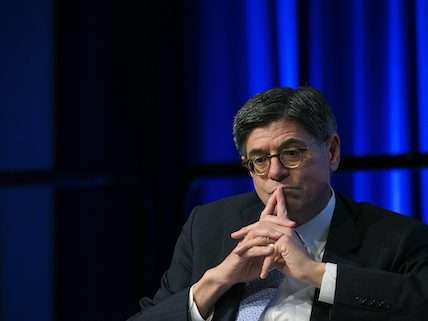A Ringside Seat to the Debt Ceiling Fight
With our debt about to explode, the debt limit is more needed than ever. Congress needs to resist the calls to dispose of it.

If most lawmakers had their way, there would be fewer rules to restrain them from growing spending and the national debt. Case in point: the 2015 suspension of the debt limit—the maximum amount of money the government may borrow—as part of a deal to increase spending above the previously agreed-upon spending caps.
Now that the debt ceiling's suspension is set to expire in March, outgoing Treasury Secretary Jacob Lew is making the case for scrapping the constraint altogether. He just wrote an essay for the Harvard Journal on Legislation. The Wall Street Journal summarized his argument thus: "It isn't an effective device for imposing fiscal discipline and instead provokes partisan standoffs that threaten economic calamity."
On the surface, he seems to have a point. First, we've witnessed during the past few years some serious fights between those who want to raise the limit with no questions asked and those who demand that an increase be paired with spending restraints. Second, since 1993, the limit has increased almost 20 times—and the federal debt has ballooned from less than $5 trillion to almost $20 trillion, providing ammunition for the argument that it's inefficient at controlling spending.
But this wasn't always the case, writes Veronique de Rugy.


Show Comments (0)